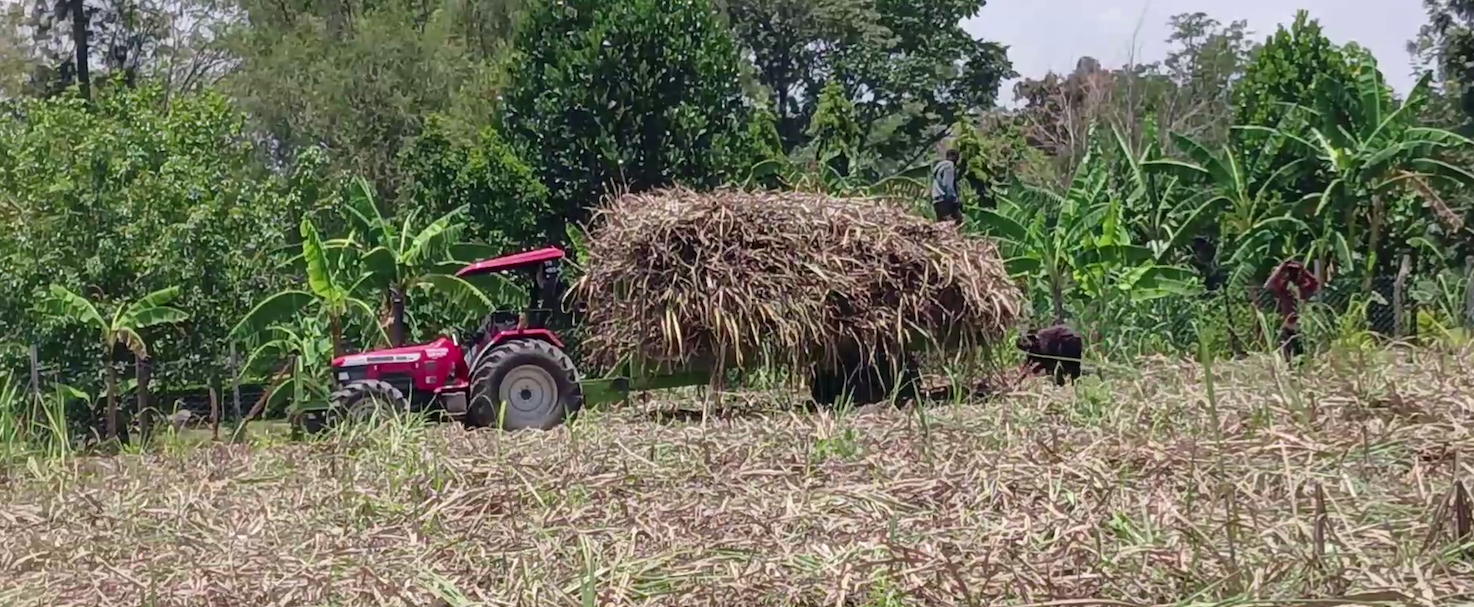
BY KENYA NEWS AGENCY
Sugarcane farmers in Busia are now blaming the Agriculture and Food Authority for the ongoing cane poaching, which has adversely affected sugar factories in Busia county.
Sugar factories in Busia have continued to count losses amounting to millions monthly as a result of increased poaching, which has pushed them to scale down their production by 40 per cent and reduce the workforce, hence adversely impacting the economy.
In an interview at Ochude village in Teso South Constituency, farmers slammed AFA for favouring Mumias over other companies, a move that has seen Mumias openly violating the law and policy on cane harvesting time and poaching regulations.
Farmers led by Kennedy Otengete now want the Busia County Assembly to enact laws that will protect the companies operating within the county against the zoning rule, which doesn’t support upcoming sugar factories.
“What we are experiencing here is a violation of the law, and some companies are receiving protection to ensure they ground others. AFA favours Mumias openly; that is why cane poaching is now rampant,” Otengete said.
Cane poaching arises when a miller supports farmers in growing sugar cane and signs a contract with them that they can only sell the cane to them. However, another miller approaches the farmers and buys the cane.
According to West Kenya Olepito Sugar Company management led by head of agriculture Titus Odingo, the company reports over 50 cane poaching cases weekly with over 100 active cases in court where some of its contracted cane farmers are supplying the cane to their competitors who are not even complying with AFA cane harvesting regulation.
“Cane poaching by sugar millers has contributed to the sugar shortage in the country due to a lack of raw materials, leading to the closure of sugar mills by the Agriculture and Food Authority to ensure the situation returns to normal,” Odingo said.
“Our factory helped immensely in cane development and reviving the sugar sector in Busia, which was already on its knees, however, some companies, to be specific, Mumias, are now engaging in poaching, a move that has seen cane being harvested before 16 months, contrary to AFA rule.”
The sentiments were echoed by Innocent Oluke, a farmer whose 11 acres were harvested by Mumias at 9 months yet he had an active contract with the Olepito sugar factory.
Oluke said most farmers don't have adequate knowledge on sugar poaching and zoning policies that were enacted by AFA to regulate the operation of sugar factories in the country.
“As farmers, most of us lack information, and that is why we end up violating these policies. Most of the time farmers are pushed to sell off their cane to willing companies due to constraints of life,” Oluke said.
In 2023, AFA Chairman Cornelly Serem read the riot act to the millers on matters of cane poaching, saying they were going to involve the police to eliminate the vice.
The move saw them close the mills for four months to ensure the cane in the country matures and milling returns to normal.
According to AFA, the studies they had conducted showed most of the cane in the fields was between 11, 12 to 13 months old and required four months to mature to have enough to crush.
“There have been rumours that maybe AFA made a mistake by closing up some mills locally, there is enough justification for why we did so. All the government mills were milling and not paying the workers. That means we were running into arrears where the same farmers will ask the government to pay. If you look at Chemelil and Muhoroni, they were actually collecting cane for four days and then crushing or collecting after a week then crushing, an indication there is no cane to crush,” Serem said.
“The issue of harvesting immature cane will come to an end, and if you continue, your license will actually be cancelled. I mean what I say, and I don’t mince my words. I’m very firm that I will make sure there’ll be sugar on our tables locally and not imported.”
Busia sugar cane farmers now want AFA to review the poaching policy to eliminate cane poaching.










